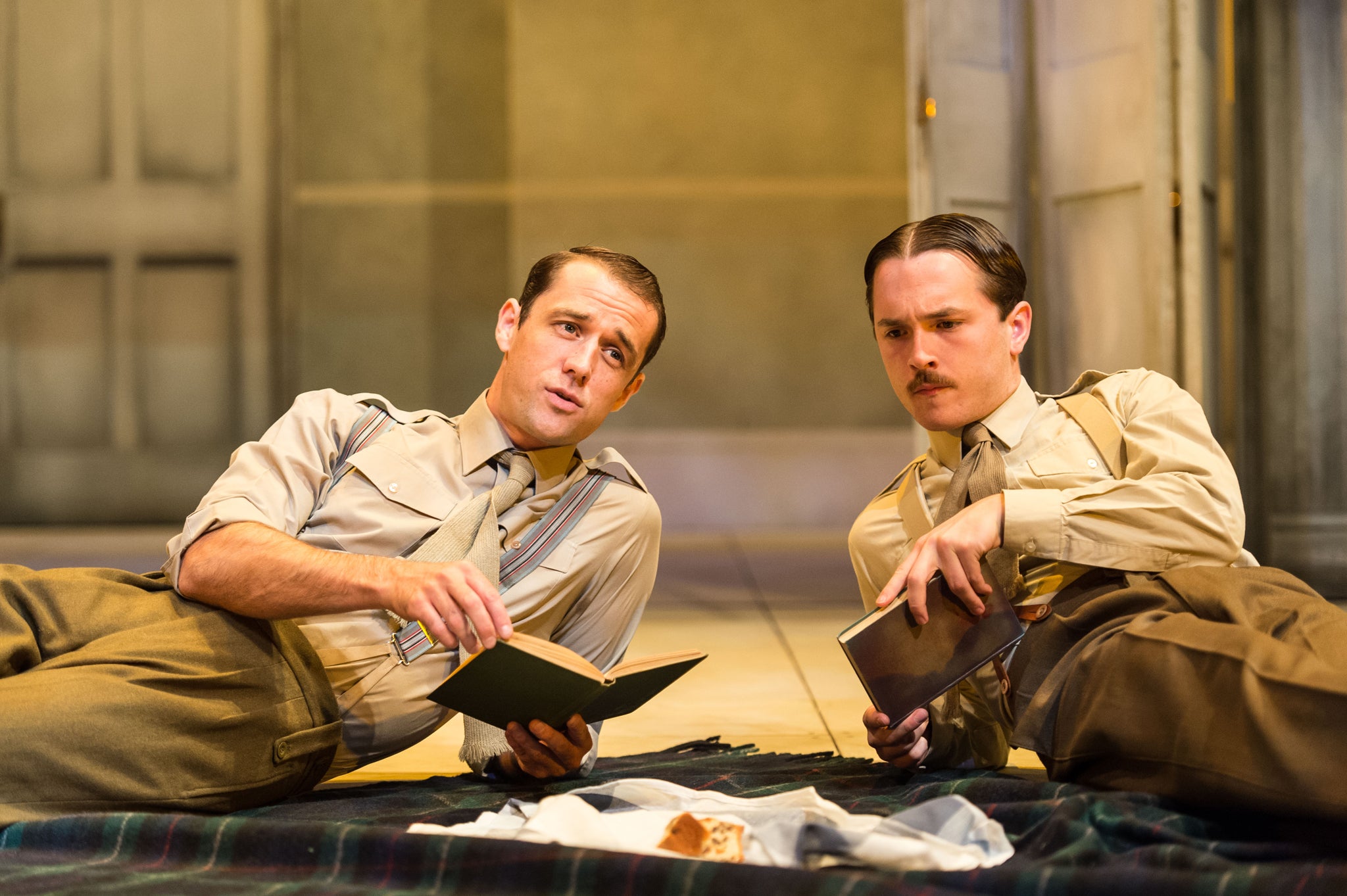Regeneration, Royal and Derngate, Northampton - review: Gutting and unmissable

Your support helps us to tell the story
From reproductive rights to climate change to Big Tech, The Independent is on the ground when the story is developing. Whether it's investigating the financials of Elon Musk's pro-Trump PAC or producing our latest documentary, 'The A Word', which shines a light on the American women fighting for reproductive rights, we know how important it is to parse out the facts from the messaging.
At such a critical moment in US history, we need reporters on the ground. Your donation allows us to keep sending journalists to speak to both sides of the story.
The Independent is trusted by Americans across the entire political spectrum. And unlike many other quality news outlets, we choose not to lock Americans out of our reporting and analysis with paywalls. We believe quality journalism should be available to everyone, paid for by those who can afford it.
Your support makes all the difference.Though I was raptly absorbed throughout by this superb stage version of Pat Barker's award-winning First World War novel (cannily adapted by Nicholas Wright and powerfully directed by Simon Godwin) I found myself unable to sit still and kept shifting position in my seat, when not half-jumping out of it (and not just at the horrific and heartbreaking mental regressions to the trenches and ghostly revenants).
And that's because, even more so than when you read the book (a work of genius, in my view), the material – presented through the physical immediacy of theatre – seems to get through to your neurological (as well as emotional, psychological and intellectual) depths.
The scene is Craiglockhart Hospital, near Edinburgh, between the summer of 1917 and January 1919. It was to this establishment that the soldiers left traumatised in body and mind by their experiences at the Front were despatched for treatment.
It was a place of forward-looking, humane experiment at the therapeutic interface between new insights into the psyche and fresh understandings of its links with the body's complex neurological network. The massive excruciating paradox – that cruelly haunted Captain Rivers (Stephen Boxer) its director – is that the enlightened research was being undertaken for an agonisingly debatable utilitarian end: to patch up these variously maimed men sufficiently so that they could be sent back to the politically-created nightmare unfolding in France. Both arriving at a “cure” and the getting cured were considered, by the majority, to be a patriotic duty.
The most upsetting episode in this quite properly and unsensationally shaming play takes place in London where Boxer's attractively divided and wryly harrowed Rivers – is treated to the exhibition of an attempted electric shock treatment for traumatic mutism that is inflicted on a defenceless and forcibly restrained middle-aged familyman.
The doctor (white coat, bow-tie, pervy black gloves) is brilliantly repellent in Simon Coates performance – prissy and implacably righteous as he applies bigger shocks like a connoisseur of both physical torture methods and brutal moral blackmail. “You're not behaving like the hero your country believes you to be,” he encouragingly informs his broken victim. The chilling twist is that his method produces the “goods”.
In the contrastingly non-sadistic Craiglockhart, there's the recognition that some of the symptoms bear a counter-intuitive relation their true psychic cause – hysterical paralysis stemming from a desire not to desert one's fellow-soldiers rather than as the perverse expression of a desire to flee to to safety.
The poet Siegfried Sassoon (played with dashing mock-insouciance by Tim Delap) was shunted to the hospital because the War Office chose to pass off his courageous, reckless and incendiary public statement – that the war is “being deliberately prolonged by those who have the power to end it” – as the sign of a nervous breakdown, a manouevre not unworthy of the later Soviet Union.
The acting – though it can sometimes, especially in groups, be a bit too “up” -- is terrific. Garmon Rhys oozes just the right degree of fan-worshipping romantic crush on Sassoon whose influence he will need to shake off to achieve his igmost searching feats of poetic witness.
Jack Monaghan has almost negligent charisma as the fictional (and bisexual) Billy Prior, whose backstreet-Bradford-lad-turned-sceptical officer give us a mordantly defamiliarisng perspective on the proceedings. Gutting and unmissable.
To 20 Sept; 01640 624811
Join our commenting forum
Join thought-provoking conversations, follow other Independent readers and see their replies
Comments